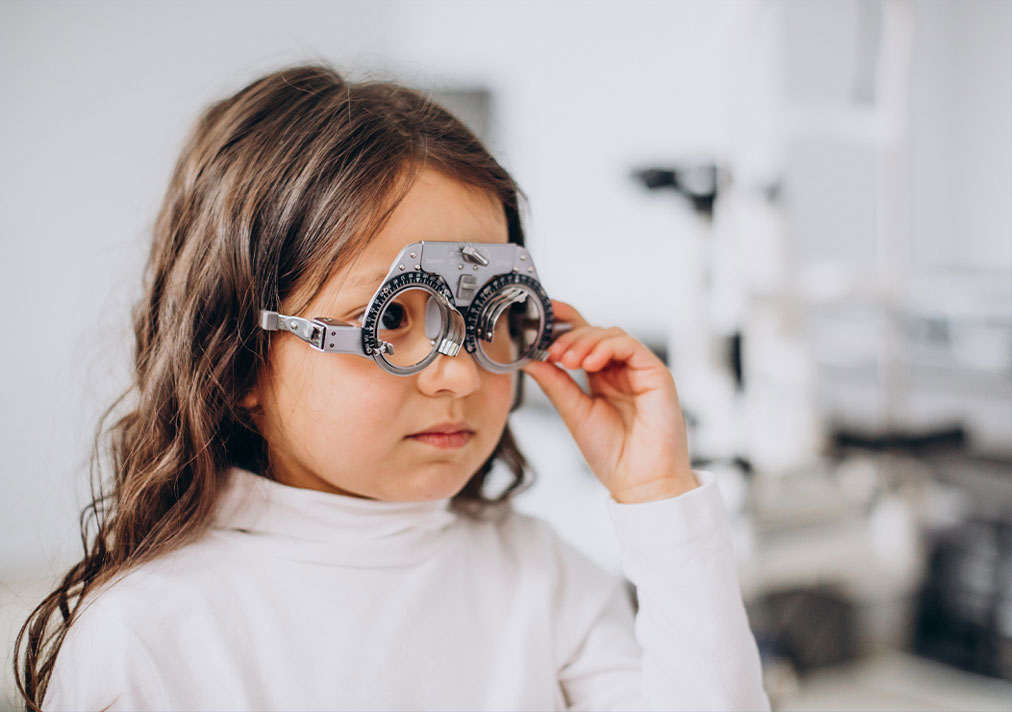What is myopia? Why does it occur in children?
Nearsightedness, known as myopia, manifests as blurry vision for distant objects, commonly affecting children due to genetic and environmental factors. Genetic predisposition is notable, with myopic parents having a higher likelihood of having myopic children. Environmental contributors involve prolonged close-up activities, such as excessive screen time and reading, leading to elongation of the eyeball and focal problems. Additionally, factors such as insufficient outdoor time, inadequate lighting during close-up work, and lack of proper eye care awareness can further contribute to the development and progression of myopia in children.
How can the chances of it be decreased? What are some measures parents can take?
Reducing the likelihood of myopia progression in children involves promoting outdoor activities, as natural light has been associated with a lower risk of myopia. Alleviating eye strain during screen time can be achieved through the implementation of the 20-20-20 rule, prompting a 20-second break every 20 minutes to focus on something 20 feet away. It is crucial to limit screen time and advocate for a balanced lifestyle with adequate sleep. Ensuring proper lighting and ergonomics during close-up activities is essential. Essential for early detection, regular eye check-ups are crucial. If myopia is identified, corrective measures such as prescribing glasses or contact lenses may be recommended.
What are some general practices to follow for good vision in children?
Encouraging children to spend 1-2 hours outdoors daily helps reduce myopia risk. A balanced diet rich in vitamins A, C, and E, along with omega-3 fatty acids, supports eye health. Limiting screen time and applying the 20-20-20 rule during extended device use is essential, while well-lit environments for close-up activities should be ensured. Emphasize eye protection during sports and activities to prevent injuries, and prioritize adequate sleep for sharp vision. Additionally, promoting proper hydration contributes to general well-being, including maintaining eye moisture. Most importantly, routine eye check-ups are vital for early detection and timely intervention.




